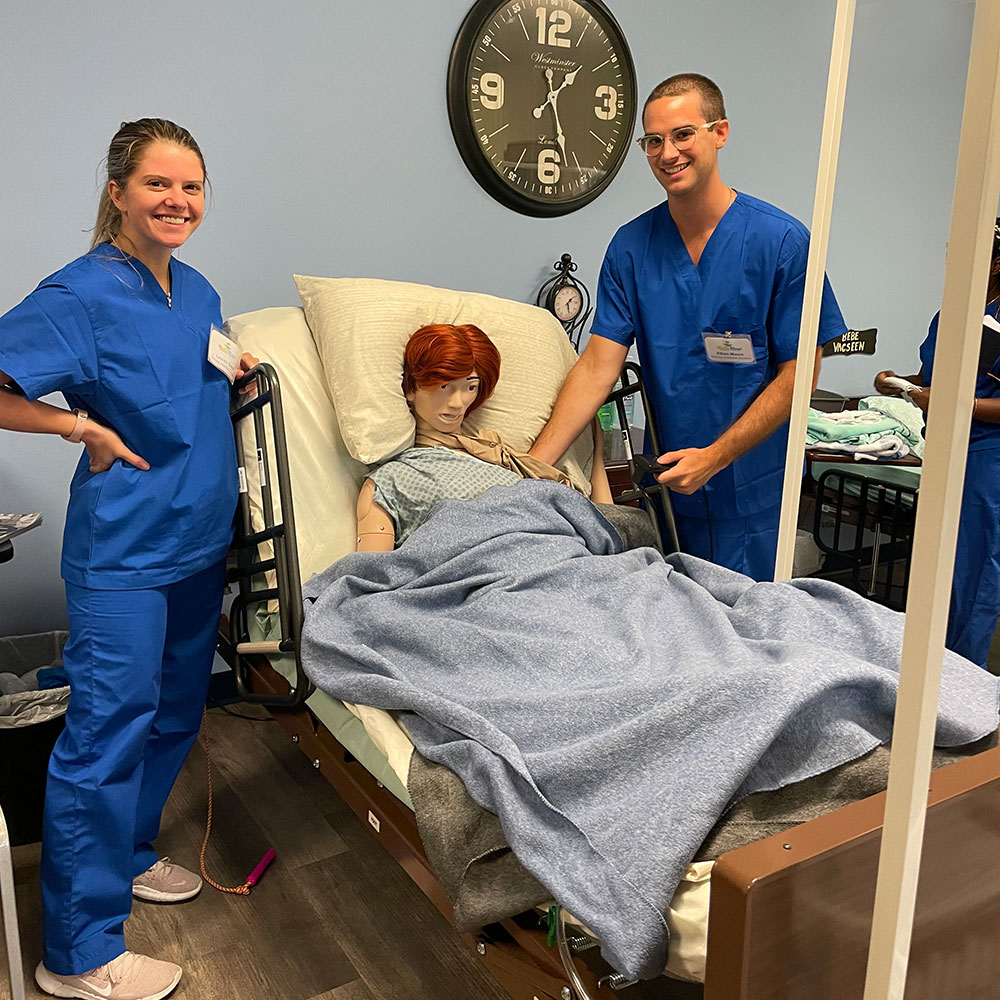The Role of Accreditation in CNA Classes: Why It Counts
Wiki Article
How CNA Classes Can Help You Launch an Effective Occupation in the Clinical Field
CNA classes function as a foundational stepping rock for individuals aiming to go into the medical field (CNA Classes). These programs impart essential abilities, consisting of reliable communication and personal treatment techniques. Students take part in hands-on training, linking theory with sensible application. As the need for medical care specialists grows, the function of a Qualified Nursing Aide comes to be significantly substantial. This increases inquiries about the various profession courses and advancement possibilities that exist ahead for those who finish their trainingComprehending the Function of a Certified Nursing Assistant
The duty of a Qualified Nursing Aide (CNA) is essential to the healthcare system, serving as an important web link between clients and medical staff. CNAs primarily help patients with day-to-day activities such as bathing, dressing, and eating, guaranteeing their convenience and dignity. They are typically the very first factor of contact for patients, supplying essential psychological support and companionship. Along with personal care, CNAs are responsible for keeping track of patients' vital signs, reporting modifications in condition to nursing team, and preserving individual documents. Their tasks encompass making sure sanitation in person environments and helping with mobility. This role requires a thoughtful disposition, strong communication abilities, and the capacity to work effectively under stress. By helping with a smooth operations within healthcare settings, CNAs play a considerable part in boosting the overall patient experience and sustaining the wider clinical team in delivering high-quality treatment.Key Skills Gotten in CNA Classes

Furthermore, CNA programs stress personal care skills, incorporating help with day-to-day living activities such as bathing, dressing, and feeding. CNA Classes. Infection control methods are another crucial part, ensuring that pupils comprehend exactly how to keep a safe atmosphere for both patients and themselves
In addition, pupils get expertise in basic medical terms, facilitating much better understanding of health care methods. Time management skills are cultivated to help CNAs prioritize tasks efficiently. Generally, these vital skills form the structure for an effective career in the medical area, preparing pupils to fulfill the diverse demands of people.
The Advantages of Hands-On Training
Getting functional experience with hands-on training is necessary for striving CNAs, as it connects the gap in between academic knowledge and real-world application. This immersive understanding technique allows students to establish essential abilities needed for individual care, such as efficient interaction, empathy, and technological capacities. Taking part in real-life scenarios allows students to comprehend the dynamics of a healthcare setting, promoting self-confidence go to website in their capacities.Hands-on training helps pupils end up being acquainted with vital equipment and treatments, ensuring they are well-prepared for the challenges of the task. It also gives possibilities to get immediate responses from trainers, enhancing the discovering experience. By working straight with individuals under supervision, striving CNAs can hone their observational abilities and learn to reply to different circumstances suitably. Eventually, hands-on training furnishes these future health care specialists with the competence and guarantee needed to prosper in their functions.
Job Opportunities After Ending Up Being a CNA
Numerous occupation opportunities wait for click reference people that finish their CNA training, opening doors to different functions in the medical care industry. Certified Nursing Assistants (CNAs) are vital participants of the medical care team, offering straight individual treatment in setups such as healthcare facilities, taking care of homes, and aided living centers. Their responsibilities can include helping with everyday living activities, checking crucial indications, and giving emotional support to clients.Beyond conventional settings, CNAs may likewise discover possibilities in specialized locations, such as recovery centers or home healthcare. Furthermore, some might change right into duties in management assistance or patient advocacy, leveraging their direct experience with people. The demand for CNAs remains to expand, driven by a maturing population and a raised concentrate on high quality individual care. This high demand guarantees that people getting in the field have a range of options to pursue, making it an attractive entry factor right into a fulfilling job in medical care.
Paths for Advancement in the Medical Care Field
Advancement in the healthcare field uses numerous pathways for individuals looking for to enhance their occupations beyond the function of a Certified Nursing Assistant (CNA Classes). After acquiring experience, lots of CNAs decide to seek more education and accreditations, such as becoming a Licensed Nurse (LPN) or Nurse Practitioner (RN) This change usually my link entails enrolling in linking programs that acknowledge their current skills
Constant professional growth through workshops and workshops can keep CNAs upgraded on sector requirements, making them a lot more competitive prospects for development. The healthcare field provides different avenues for development, making it possible for CNAs to shape their job trajectories successfully.
Frequently Asked Inquiries
How Much Time Do CNA Courses Typically Require To Total?
CNA classes generally take in between four to twelve weeks to finish, depending upon the program structure. Variables such as program strength, scheduling, and the organization's curriculum layout can affect the general duration of training.What Is the Expense of CNA Training Programs?
The cost of CNA training programs varies widely, generally ranging from $300 to $2,000. Aspects influencing this cost consist of area, program length, and whether the training is used via community universities or private organizations.Are Online CNA Classes Available?

What Is the Certification Test Process Like?
The qualification exam process commonly includes a written examination assessing knowledge and an abilities demo. Candidates should pass both parts to come to be qualified, guaranteeing they satisfy the essential expertises required for nursing aide roles.Do I Required Previous Healthcare Experience to Enroll in CNA Classes?
Prior healthcare experience is not a requirement for enrolling in CNA classes. Individuals from various backgrounds can go into the program, as it is made to supply thorough training and knowledge necessary for effective accreditation and technique.Report this wiki page